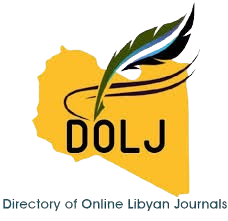Assessment and Optimization of a Decentralized Food-Waste -To-Energy System by using Anaerobic Digestion System: Case study in Beyda City
DOI:
https://doi.org/10.64516/cqcrjr51Keywords:
Renewable Energy, food waste, biogas, anaerobic digestion, Aspen PlusAbstract
In this study, anaerobic digestion was used to manufacture biogas from food waste. To improve production digester performance and biogas generation, chicken manure and slaughterhouse waste were added. The Bach feeding system with two digesters was followed by a laboratory fermenter. Bones were put to the second fermenter after the first fermenter was loaded boneless. The anaerobic digestion of food waste was simulated using two steps of Aspen Plus. According to experimental data, the first reactor generated the most gas on the seventh day, with 0.357 liters, while the second digester produced 0.24 liters. Aspen Plus simulation findings showed 42.38% CO2, 5.8% traces, and 50.82% methane. This illustrated how closely the biogas's composition matched that of the traditional.
References
1- Srivastava, S. K. (2020). Advancement in biogas production from the solid waste by optimizing the anaerobic digestion. Waste Disposal & Sustainable Energy, 2, 85 103.
2- Zamri, M. F. M. A., Hasmady, S., Akhiar, A., Ideris, F., Shamsuddin, A. H., Mofijur, M., ... &Mahlia, T. M. I. (2021). A comprehensive review on anaerobic digestion of organic fraction of municipal solid waste. Renewable and Sustainable Energy Reviews, 137, 110637.
3- Lin, L., Xu, F., Ge, X., & Li, Y. (2019). Biological treatment of organic materials for energy and nutrients production Anaerobic digestion and composting. In Advances in Bioenergy (Vol. 4, pp. 121 181). Elsevier.
4- Cecchi, F., &Cavinato, C. (2019). Smart approaches to food waste final disposal. International journal of environmental research and public health, 16(16), 2860.
5- Chowdhury, T. H. (2021). Technical economical analysis of anaerobic digestion process to produce clean energy. Energy Reports, 7, 247 253.
6- Zhang, R., El Mashad, H. M., Hartman, K., Wang, F., Liu, G., Choate, C., & Gamble, P. (2007). Characterization of food waste as feedstock for anaerobic digestion. Bioresource technology, 98(4), 929 935.
7- Rhee, C., Kim, D. W., Yu, S. I., Lee, M. E., Shin, J., Kim, H. W., ... & Shin, S. G. (2021). Biogas potential assessment and characterization of Korean slaughterhouse waste for anaerobic digestion. Environmental Technology & Innovation, 24, 101858.
8- Harun, N., Hassan, Z., Zainol, N., Ibrahim, W. H. W., & Hashim, H. (2019). Anaerobic digestion process of food waste for biogas production: a simulation approach. Chemical Engineering & Technology, 42(9), 1834 1839.
Downloads
Published
Issue
Section
License
Copyright (c) 2024 Journal of Engineering Sciences

This work is licensed under a Creative Commons Attribution 4.0 International License.













